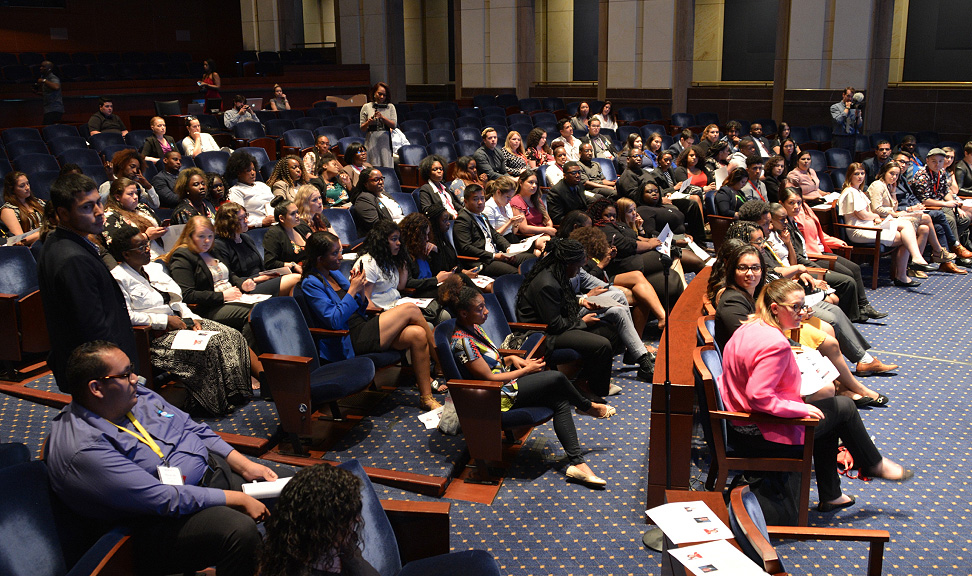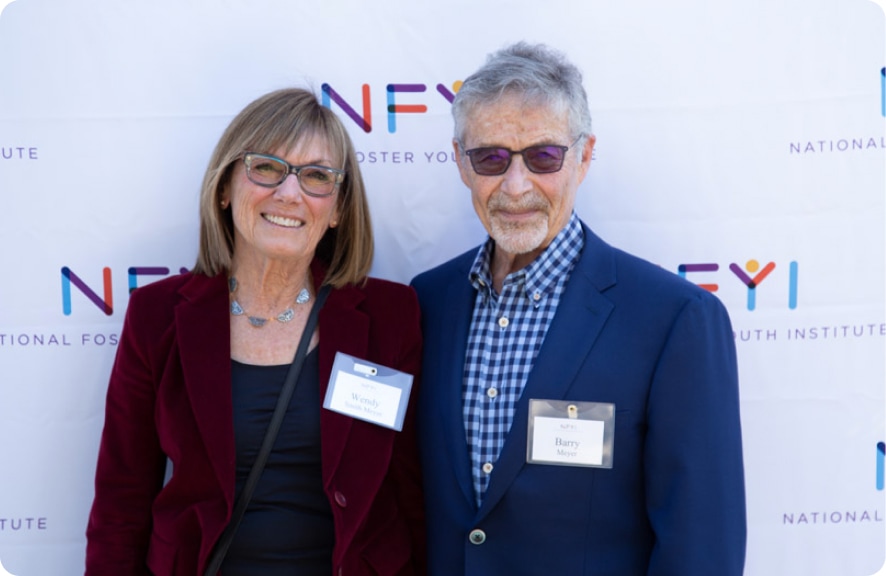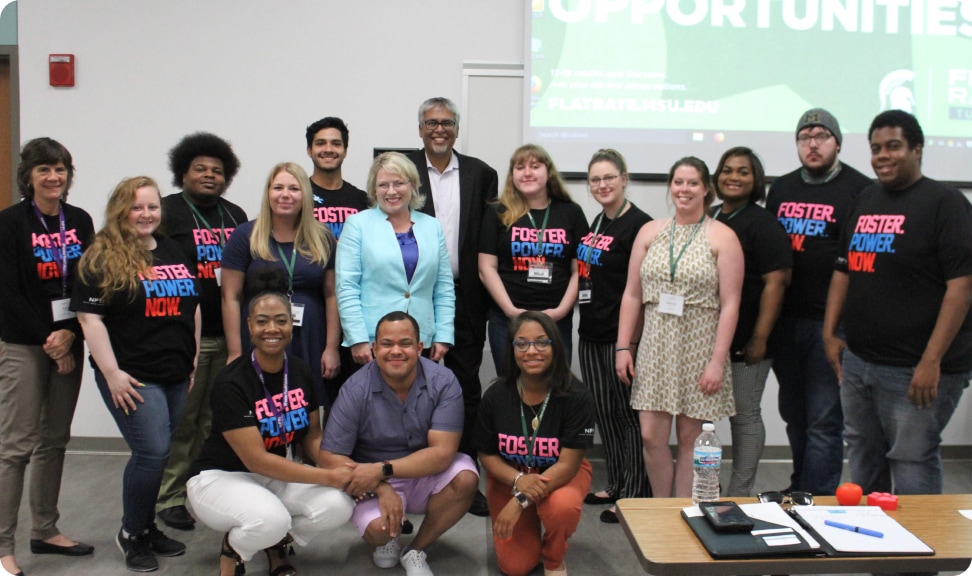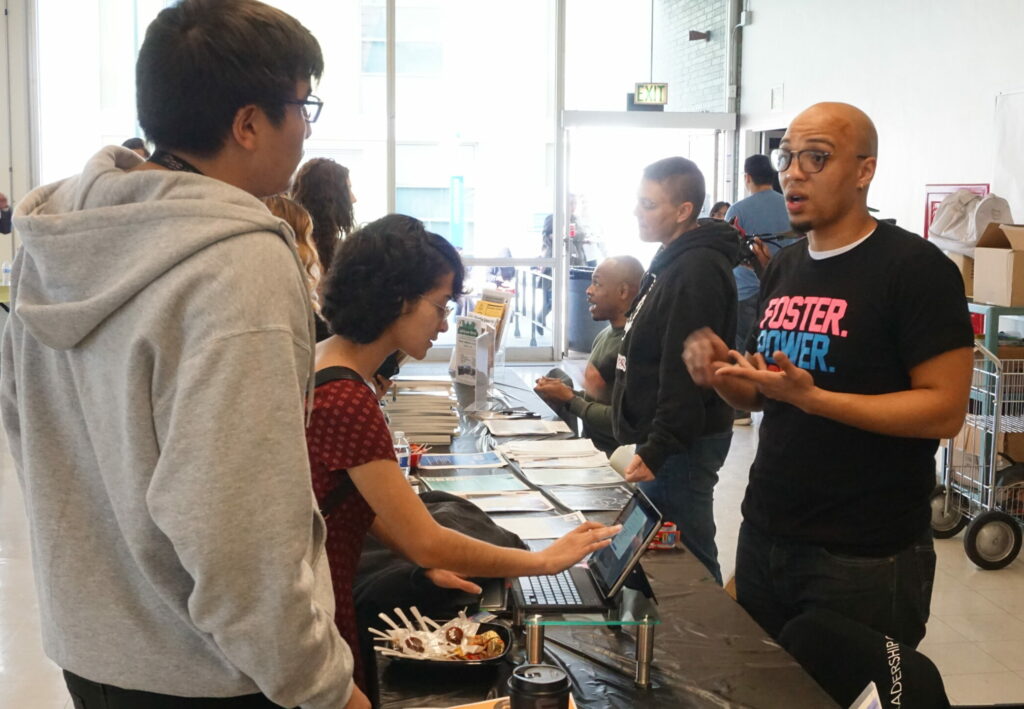Lifting up foster youth voices to help children and families thrive
Our Vision
The National Foster Youth Institute's vision is that the child welfare system is transformed into a community of support centered on child well-being and lived experiences.


Our Mission
NFYI empowers current and former foster youth, their families, and communities to use their lived experiences to bring about systemic policy changes in the child welfare system nationwide.
Our team has diverse experience and deep expertise in child welfare reform, community organizing and policymaking. All of our program staff and half of our leadership team are alumni of care.

WHO BETTER TO ADVOCATE FOR FOSTER CARE BESIDES THE FOSTER YOUTH WHO LIVE THROUGH IT?

BRIAN MORGANTINI

On any given day, there are approximately 400,000 children in foster care in the United States.
Foster care is intended to be a temporary solution for children who have been removed from abusive and/or neglectful households, been given up or abandoned, or who have been left without anyone to care for them after the death or incarceration of parents. Whether they’re placed with relatives, foster parents, or in group homes, they’re all in the foster care system with the goal of growing up in a safer and more supportive environment.
Despite good intentions, however, government bureaucracies often fail to deliver on promises to create a better life for these vulnerable children. As a result, many foster youth experience a childhood that is far from ideal. Early interventions that could keep families together aren’t taken. Foster youth often bounce from home to home and school to school, suffer abuse, and lack the stability and support provided by a loving family. Young people who are brought up in foster care are more likely to endure problems such as poverty, compromised health, unemployment, and incarceration at higher rates than their peers. Meanwhile, the families of these foster youth continue to struggle with poverty, mental illness, and addiction, without access to the support and resources needed to keep their families together.
Each year, 20,000 young adults age out of foster care.
Entering adulthood and becoming independent is a challenge for most young people. No matter their circumstances, most young adults aren’t ready to be completely on their own at 18 or 21 — the ages of emancipation from foster care in most states. For TAY who have been in foster care, aging out without community support, housing, or a strategy for the future puts them in extremely vulnerable positions. One in five will become homeless after 18. Just half will be employed at the age of 24. According to iFoster, within four years of aging out, 50% of TAY have no earnings, and those who do make an average annual income of $7,500. And 25% of foster youth will be in prison within two years of emancipation.
But there are policies and laws that, when implemented effectively, can ease the transition out of foster care and into the next phase in life. There are social workers who guide in planning for the future. There are mentors who guide inexperienced students through college. There are families that step up to help. And there are communities like the one we’re building at NFYI.
The former foster youth who work with NFYI are students, attorneys, first responders, stay-at-home parents, elected officials, small business owners, social workers, authors, food service workers, teachers. They’re LGBTQ, they’re immigrants, they’re Democrats, Republicans and Independents. They live in cities, suburbs, rural communities, and on reservations. Some are thriving financially and others are homeless.
What this diverse community has in common is their experience in foster care; their resiliency; and a shared commitment to ensuring that children in foster care and transition age youth have opportunities, access to resources, and a chance to thrive. We help them achieve those goals by harnessing the expertise their experience in child welfare gives them, amplifying their voices, and bringing them into direct contact with the people whose decisions determine just how effective our child welfare system will be.
NFYI was created to organize foster youth and families, foster care alumni, and allies in Congress and across the country to mobilize around transforming the nation’s child welfare system.
Launched in 2012 by the Honorable Karen Bass, Mayor of Los Angeles (who served as a co-chair of the bipartisan Congressional Caucus on Foster Youth), NFYI has elevated the voices of thousands of current and former foster youth, resulting in transformative change within the child welfare system, a culture shift among decision-makers, and the development of professional and organizing skills among these young leaders.
Our members are between the ages of 18 and 30 and receive training, support, community, and a seat at the decision making table. We also bring biological, foster, and adoptive parents to the conversation along with service providers, policymakers, decision makers, elected officials, and any community member who is ready to passionately advocate for improving child welfare.
NFYI is uniquely qualified to undertake radical systems change by using an inside/outside strategy. As part of our inside strategy, we partner and engage with policymakers and appointed and elected officials like Members of Congress around their priorities and goals, bringing foster youth voices inside the policymaking process.
Our outside strategy is a grassroots organizing approach to mobilizing youth and families, working with them to identify and advance issues and solutions that elected officials may not be prioritizing. In isolation, these strategies often don’t have long-term impact. But implemented together, they help us create lasting change and ensure that the needs of the population we serve are truly addressed.
We’re the only organization that uses the inside/outside strategy to focus on changing child welfare policy at the local, state, and federal levels, building strong, strategic partnerships with elected and appointed officials at every level of government.
Examples of our strategy in action

More than 750 young adults have had an opportunity to share their stories, offer input, or give feedback directly to federal lawmakers and administration officials.
As a direct result of a 2018 NFYI Listening Tour in Miami, Members of Congress introduced the Uninterrupted Scholars Act. Signed into law six months later, it provides school stability and increases the chances of academic success for foster youth by allowing a child’s caseworker to request education records and enabling children to stay in their schools, even if they change residences.

In 2018, NFYI raised awareness of the fact that more than 60% of child trafficking victims are current or former foster youth. It was part of an effort to pass the Justice for Victims of Trafficking Act, which ensures that child welfare agencies respond to reports of child trafficking and provide recovery resources to child victims.

NFYI is intentional about representing the community we serve in order to establish trust. Many members of our board and staff have lived experience in foster care, the child welfare system, and the juvenile justice system. All of our program staff are alumni of care.
Since the start of the COVID-19 pandemic, NFYI Town Halls, outreach, and media we’ve produced have informed three pieces of legislation introduced by Members of Congress to protect foster youth and TAY during the crisis. The bills expand health care, extend benefits for youth aging out of care during the pandemic, and provide funding that would allow child protective services to continue to operate during community quarantine.

Since we launched the #FosterYouthVoices social media campaign to raise awareness of the strength of our member voices, it has been viewed/engaged with hundreds of thousands of times on Twitter, Facebook, and Instagram, propelled by influencers like Ashton Kutcher, Dr. Phil, and influential members of Congress.
We connect all who share a common concern: to improve the well-being of foster youth and their families.



